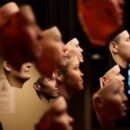What is leadership?

Kenyans go to the polls this coming week. After the votes are counted and accepted, a new president will be certainly be in place; so will many new governors, senators, members of parliament, and members of county assemblies. There is, yet again, the opportunity to reset our nation.
Far be from it for me to suggest whom you should vote for. That is a matter for you, and you alone. It stays between you and your ballot box; between you and your conscience; between you and your considered judgement. What I can perhaps shed some light on is the answer to a seemingly innocuous question: what is leadership?
At one level the answer is obvious. Those who can get followers are leaders, and what they do is leadership. If you are elected, appointed, or anointed to lead others, then congratulations—you’re a leader. Whatever it took to gain your position—charm, charisma, intellect, craft, aggression, bluster, even outright lies—constitutes your leadership.
In this telling, leadership is all about one person—the leader. The character, personality, and resources of the leader tell us everything we need to know. The leader’s daily mien, attitudes, style, and behaviours become the leadership we have. The success or failure of the leadership becomes linked with the nature of the leader.
Because we are used to leaders being ever-present—on our walls, on our screens, in our headlines, in our faces—we focus on the person of the leader. We study their mannerisms, we grin or grimace at their utterances, we observe their dressing styles, we become used to their phrases and behaviours. The leader is everything you need to know about leadership.
But this is a delusion.
Leadership has very little to do with the personal characteristics of one individual; it has everything to do with what that leader achieves—for others. Which others? Those who are being led.
We go wrong when we focus on the person rather than the power; the personality rather than the opportunity; the talk rather than the walk. Because here’s the thing: leadership isn’t about the leader; it’s about everyone else.
We don’t elect or appoint leaders in order to bestow status and riches on them; we do it in the hope that they will lead the collective to a better place. As such, we should not vote for those who seduce us or browbeat us; we should vote for those with the intentions and ideas for our betterment—not theirs.
Leadership, then, is not about what about leaders do or how they behave; rather, it is about creating the conditions in which others can give of their best. As I have written here before, we should think of the leader as the gardener, not the biggest tree that takes the most sunlight and overshadows the others. The leader fertilizes, plants, prunes, and monitors, so that the garden can grow and flourish. The leader works through others; the leader’s job is to bring out the best in the team.
Leaders are found everywhere on the spectrum. Some are fierce and demanding; others are laid-back and permissive. Some give big speeches every other day; other speak only when necessary. Some have big brains; others have big hearts. These are not the differences we should fixate on. Instead, we should focus on the results of leadership: the actual development and betterment of the greater populace, in the longer term.
As you look at the list of various candidates at various levels before you, then, some key questions arise. Which of these candidates are not in this race for themselves, but for others? Which of these seem most able to work with others for a greater goal? Which of these are generous human beings? Which of these can unite us rather than divide us further? Which of these are demonstrating ideas and programmes that uplift others? Which of these will build a team of talents? Which of these have the brains and emotional intelligence and determination to ignite the uplift of everyone in the nation?
Perhaps the most important question is this: which of these potential leaders might bring out the best in me? Never forget: the leader is never going to do the work that is needed in your life; you are. The best leader for you will be the one who will give you the inspiration to work harder, enable you to access opportunity, empower you to deliver results, and take you to deeper kinship with your fellow citizens. The best leader for you will enjoin you in a common mission to make all lives better. Vote for the gardener who will allow you—and everyone around you—to grow.
Are such persons there on that ballot paper? Only you can answer that. I wish wisdom and discernment for you as you make your choice.
(Sunday Nation, 7 August 2022)

Buy Sunny Bindra's new book
The X in CX
here »
Popular Posts
- You are who you hang out withSeptember 28, 2025
- Born knowing the waySeptember 21, 2025
- The cost of pretenceSeptember 7, 2025
- The art of the CX rescueSeptember 14, 2025
- The balance sheet that mattersOctober 5, 2025















